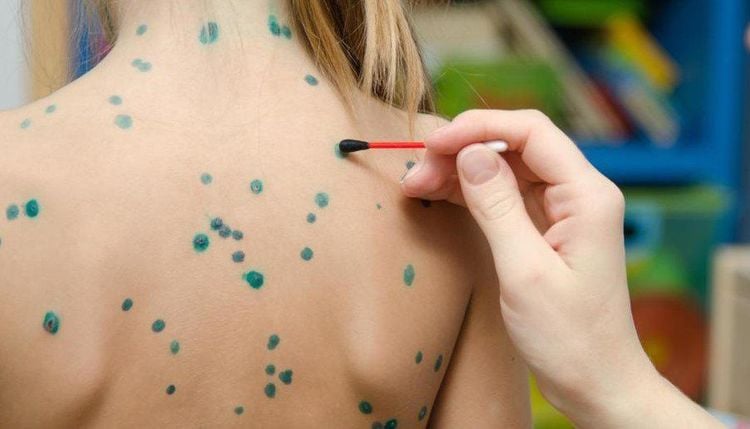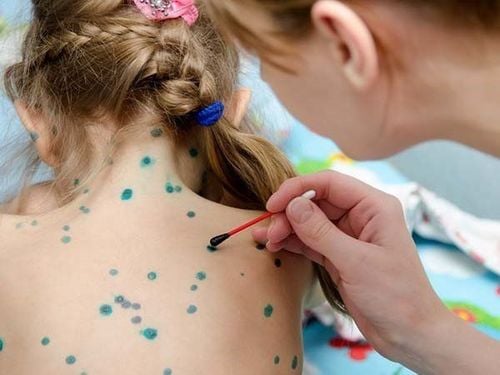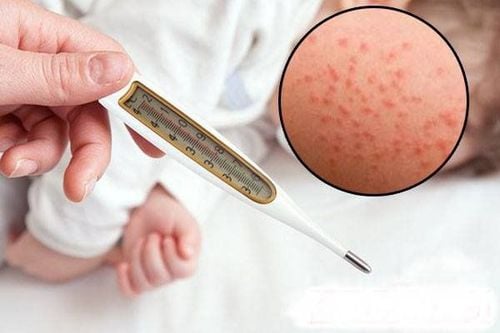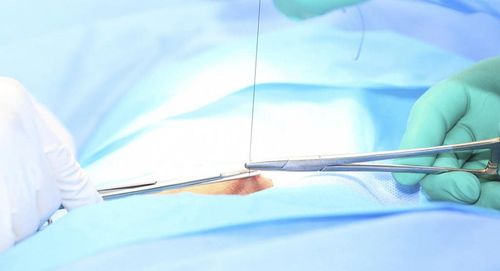This article has been professionally consulted by Specialist II, Dr. Huynh Thi Diem Thuy - Vaccine Consultant - Department of Pediatrics and Neonatology, Vinmec Central Park International General Hospital.
A mother with chickenpox should avoid breastfeeding directly to prevent transmitting the disease to her baby. Once the mother has fully recovered, she can resume breastfeeding as usual.
1. How to Treat Chickenpox for Breastfeeding Mothers
Chickenpox is an acute viral infection caused by the Varicella-Zoster virus. It is highly contagious and mainly spreads through the respiratory tract when individuals are in close contact, such as talking or being near one another. If an infected person coughs, sneezes, or talks, they release viral particles into the air. Another person can become infected by inhaling these secretions. Additionally, chickenpox can be transmitted indirectly through contact with broken blisters or lesions on an infected person’s skin.
Chickenpox is a viral disease, and antibiotics are unnecessary unless there is a secondary bacterial infection, which could present symptoms such as swelling, warmth, redness, pain, or pus. To prevent infection from broken chickenpox blisters (and even intact blisters), it is advisable to apply solutions like methylene blue, eosin red, or potassium permanganate. To support recovery, the patient should consume sufficient nutrients, rest adequately, and wear loose-fitting, lightweight clothing. Changing clothes twice a day and taking daily warm baths in a closed room can also aid recovery.

2. Breastfeeding When the Mother Has Chickenpox
Newborns have weak immune systems and are particularly vulnerable to infections, especially from those who care for them, such as parents and grandparents. The incubation period, which is 2-3 days before the appearance of blisters, is the most contagious time, followed by about two weeks during which blisters develop.
Breastfeeding mothers with chickenpox should adhere to the following guidelines during their illness:
- Maintain good hygiene in daily activities.
- Bathe thoroughly with warm water.
- Follow a nutritious diet to bolster immunity and reduce the risk of chickenpox complications; ensure adequate hydration.
- Drink plenty of orange and lemon juice to increase vitamin C intake.
- Throughout the illness, the baby should be kept completely isolated from the mother if there are no signs of infection in the baby. While chickenpox is generally considered a benign disease, it can lead to certain complications, so vigilance is important.
- Do not scratch chickenpox blisters, as this can spread the virus more rapidly. If itching is severe, a 1% methylene blue solution can be applied twice daily to alleviate discomfort.

During the time the mother has blisters, the baby should sleep separately and remain isolated from the mother. If the mother is taking medications that are contraindicated for breastfeeding, she should not breastfeed. With careful hygiene and isolation practices, chickenpox typically resolves on its own within 10-15 days from the onset of the rash and fever. After recovery, the mother can breastfeed as usual without concern, as any medications taken will have been metabolized and eliminated from her body.
A mother with chickenpox should avoid breastfeeding directly to prevent passing the disease to her baby. The mother with chickenpox must take extra precautions. When breastfeeding, the mother should keep the following points in mind:
- If a mother has early-stage chickenpox, she should express milk for someone else to feed the baby. The baby should ideally sleep in a separate room and be isolated from the mother to reduce exposure. Due to their weak immune system, taking precautions is essential.
- If the baby refuses a bottle and insists on breastfeeding, the mother should wear a mask, minimize talking, and limit physical contact to reduce droplet spread. She must prevent the baby from touching or rubbing blisters, as broken blisters can release fluid that may infect the baby.
- The baby should sleep separately from the mother.
- Limit conversation with the baby or wear a mask to prevent droplets from being released.
- Be caution to ensure the baby does not rub the blisters, as this could lead to infection.
- Trim the baby’s nails to prevent scratching, which could cause the blisters to burst and spread the infection.
The best preventive measure is for mothers to get vaccinated against chickenpox before having children (if they have never had the disease). When a vaccinated mother breastfeeds, the antibodies present in her milk can help protect the baby for the first 12 months of life, even in the event of exposure to the virus.
For women who have not been vaccinated but contract chickenpox during the first three months of pregnancy, there can be severe consequences for the fetus, including congenital chickenpox, various malformations, heart issues, eye problems, or miscarriage... Furthermore, the mother becomes more susceptible to pneumonia later on. To prevent children from contracting chickenpox, all children aged one year and older should be vaccinated against the disease.
To arrange an appointment, please call HOTLINE or make your reservation directly HERE. You may also download the MyVinmec app to schedule appointments faster and manage your reservations more conveniently.








